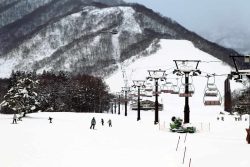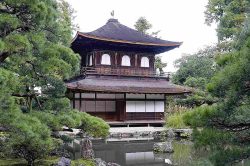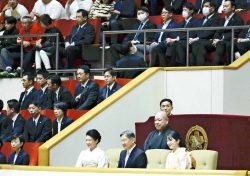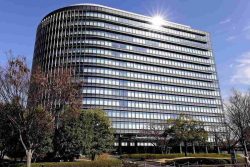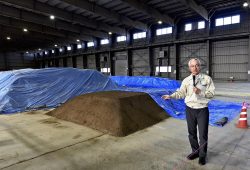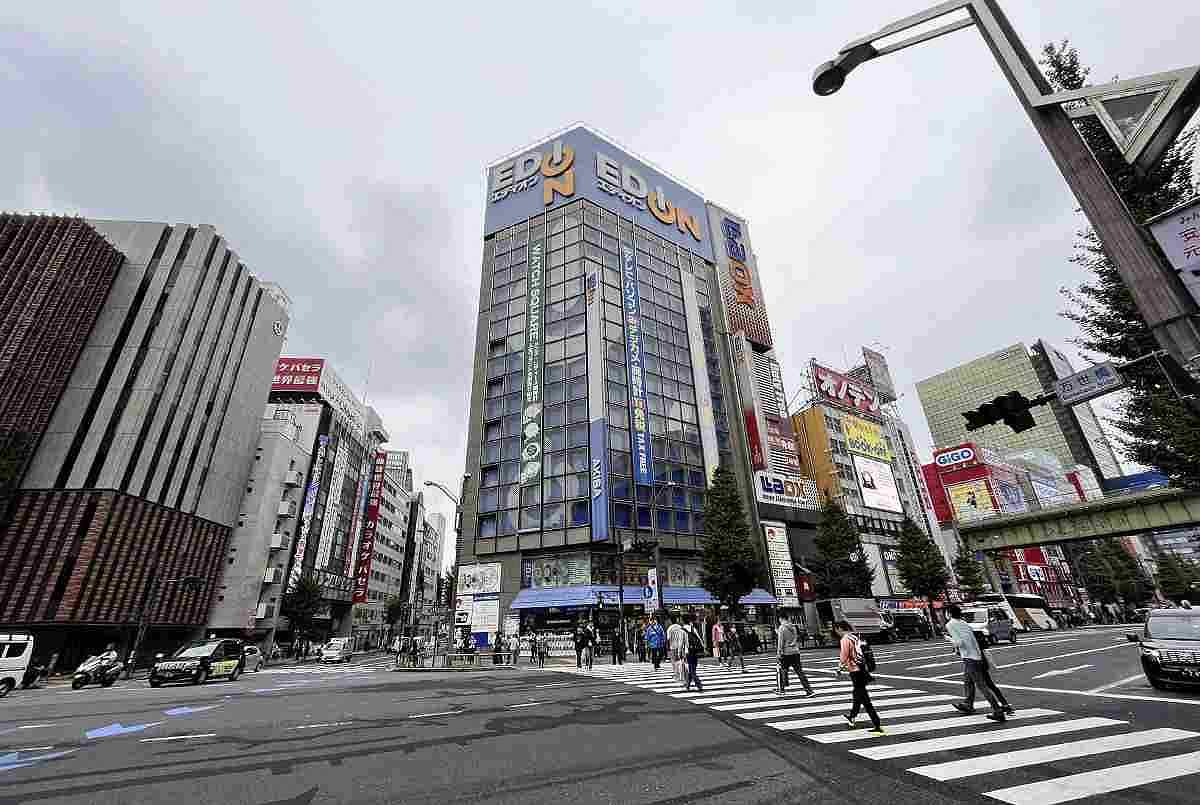
Part of the Electric Town area eyed for development in Akihabara, Chiyoda Ward, Tokyo
7:00 JST, November 15, 2023
A plan to construct several high-rise buildings in part of the Electric Town area southwest of JR Akihabara Station has finally been given the green light by Chiyoda Ward Office — some 20 years after the idea was first conceived.
However, while the redevelopment project finally appears to be moving forward, hurdles still remain, including gaining understanding from landowners who have expressed skepticism about the details of the plan and the best way to proceed with the undertaking.
‘Subcultural’ town
The envisaged redevelopment project will cover a total of 1.9 hectares in the Manseibashi bridge area of the ward’s Sotokanda district. The area is packed with small stores that reflect Akihabara’s “subcultural” image, including electronics stores, trading card outlets and personal computer specialty shops. Meanwhile, the ward’s cleaning office and a funeral hall are located along the Kanda River.
As part of the project, several high-rise buildings over 100 meters tall will be constructed over two blocks stretching across the national highway, housing hotels, offices, commercial facilities and residences.
The new buildings will also contain a cleaning office, among a number of other facilities, while a plaza and a walkway along the river will be paved following the revamping of three narrow city streets. A parking spot for tour buses also will be installed.
The redevelopment plan was first conceived in 2003. After reexamining the target area, a preparatory association primarily comprising local companies and major developers was formed in 2015.
The ward, meanwhile, has held explanatory meetings for residents, but landowners have raised objections. At a public inspection in June, about 40% of those concerned opposed the plan. The final decision was made in July by the ward’s urban planning committee, which passed the motion by a narrow margin of 8-7.
Resolving issues
The ward’s Oct. 13 announcement of its decision was likely aimed at addressing ongoing problems.
For example, an uptick in the number of overseas visitors has resulted in more and more tourist buses stopping or parking on local thoroughfares. Graffiti on buildings along narrow ward streets also is said to be a matter of public concern.
Ward facilities, too, are grappling with various issues. A lack of parking spaces in front of the cleaning office has forced sanitation vehicles to park on the street. Meanwhile, a “pencil building” funeral hall on a narrow lot has attracted criticism from funeral service workers and people who attend funerals at the facility. Some of the landowners, whose buildings are aging, are reportedly eager to disassociate from the preparatory association and rebuild independently if the project does not proceed.
A ward official said it would be difficult to independently solve the large number of outstanding challenges and create a town area that makes use of the river, saying, “Large-scale redevelopment has great advantages.”
Consent rate
Gaining the approval of more landowners will be a key factor in realizing the project: The ward will require the consent of at least about 66% of the landowners when applying for project approval from the Tokyo metropolitan government: the current rate is around 59%, according to the ward.
If the landowning ward and national and the metropolitan governments get on board, the consent rate would reach 67%, thus meeting the required level.
Under these circumstances, the ward says it can now potentially see light at the end of the tunnel, but the Tokyo government has said its decision will be made after seeing the details of Chiyoda Ward’s plans. A Chiyoda assembly member said the project should not proceed based on wishful thinking alone.
Toshiyuki Ishimaru, 77, president of former Ishimaru Denki Co., expressed caution regarding the development plan, saying, “This townscape, with its small stores and alleys, has been created by local people over decades. I fear the area might lose its unique character.”
Katsuro Ogino, 74, who chairs a company that operates a karaoke bar and hotel in the Electric Town district, said: “Tenants are being left out. I don’t know if it is right to press ahead with the plan.”
According to Chiyoda Ward, it is likely to take about two years — at the earliest — before construction starts.
“We’ll continue striving to increase consent for the project,” a member of the preparatory association said.
Top Articles in Society
-

JAL, ANA Cancel Flights During 3-day Holiday Weekend due to Blizzard
-

Man Infected with Measles May Have Come in Contact with Many People in Tokyo, Went to Store, Restaurant Around When Symptoms Emerged
-

Australian Woman Dies After Mishap on Ski Lift in Nagano Prefecture
-

Record-Breaking Snow Cripples Public Transport in Hokkaido; 7,000 People Stay Overnight at New Chitose Airport
-

Foreign Snowboarder in Serious Condition After Hanging in Midair from Chairlift in Nagano Prefecture
JN ACCESS RANKING
-

Univ. in Japan, Tokyo-Based Startup to Develop Satellite for Disaster Prevention Measures, Bears
-

JAL, ANA Cancel Flights During 3-day Holiday Weekend due to Blizzard
-

Japan Institute to Use Domestic Commercial Optical Lattice Clock to Set Japan Standard Time
-

China Eyes Rare Earth Foothold in Malaysia to Maintain Dominance, Counter Japan, U.S.
-

Japan, Qatar Ministers Agree on Need for Stable Energy Supplies; Motegi, Qatari Prime Minister Al-Thani Affirm Commitment to Cooperation



